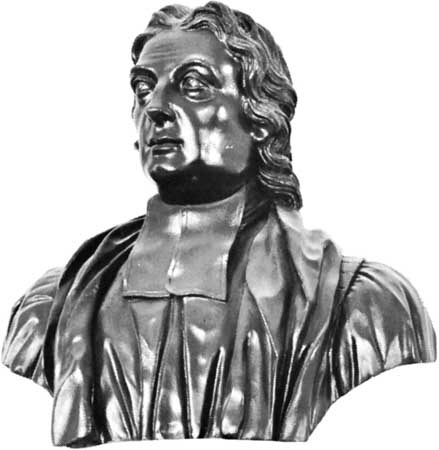Norris, John
British priest and philosopher
born 1657, CollingbourneKingston, Wiltshire, Eng.
died 1711, Bemerton, Wiltshire
 Anglican priest and philosopher remembered as an exponent of Cambridge (Cambridge Platonists) Platonism, a 17th-century revival of Plato's ideas, and as the sole English follower of the French Cartesian philosopher Nicolas Malebranche (1638–1715).
Anglican priest and philosopher remembered as an exponent of Cambridge (Cambridge Platonists) Platonism, a 17th-century revival of Plato's ideas, and as the sole English follower of the French Cartesian philosopher Nicolas Malebranche (1638–1715).Norris was elected a fellow of All Souls College, Oxford, in 1680. In 1689 he was named vicar of Newton St. Loe in Somerset, and two years later he was transferred to the rectory of Bemerton, near Salisbury, where he spent the remainder of his life.
Norris wrote numerous theological and philosophical works. It is in his moral and mystical writings that the influence of Cambridge Platonism is clearest. His first major philosophical work was Reflections upon a Late Essay Concerning the Human Understanding (1690), in which he anticipated many later criticisms of John Locke's (Locke, John) theory contained in An Essay Concerning Human Understanding; he did, however, agree with Locke in dismissing the doctrine of innate ideas (which asserts that humans hold their mental ideas at birth). Norris' An Account of Reason and Faith in Relation to the Mysteries of Christianity (1697) was one of the best contemporary responses to Christianity Not Mysterious, by the English deist John Toland (Toland, John). Norris' most significant work, An Essay Towards the Theory of the Ideal or Intelligible World (1701–04), treats the intelligible world in two parts: first, in itself, and second, in relation to human understanding. This work is a complete exposition of the views of Malebranche and refutes the assertions of Locke and others who emphasized the importance of sense experience in arriving at knowledge.
- William Lyon Mackenzie
- William Lyon Phelps
- William Magear Tweed
- William Mahone
- William Maitland
- William Makepeace Thackeray
- William Marsden
- William Marshal, 1st earl of Pembroke
- William Marshal Pembroke, 1st earl of
- William Martin Conway, Baron Conway
- William Martin Conway Conway, Baron
- William Martin Leake
- William Maxwell
- William Maxwell Evarts
- William Maxwell Gaines
- William McDougall
- William McKinley
- William McKinley: First Inaugural Address
- William McKinley: Reciprocal Trade Agreements
- William McKinley: Second Inaugural Address
- William McKinley: War Message
- William Meredith
- William Merriam Burton
- William Merritt Chase
- William Michael Rossetti